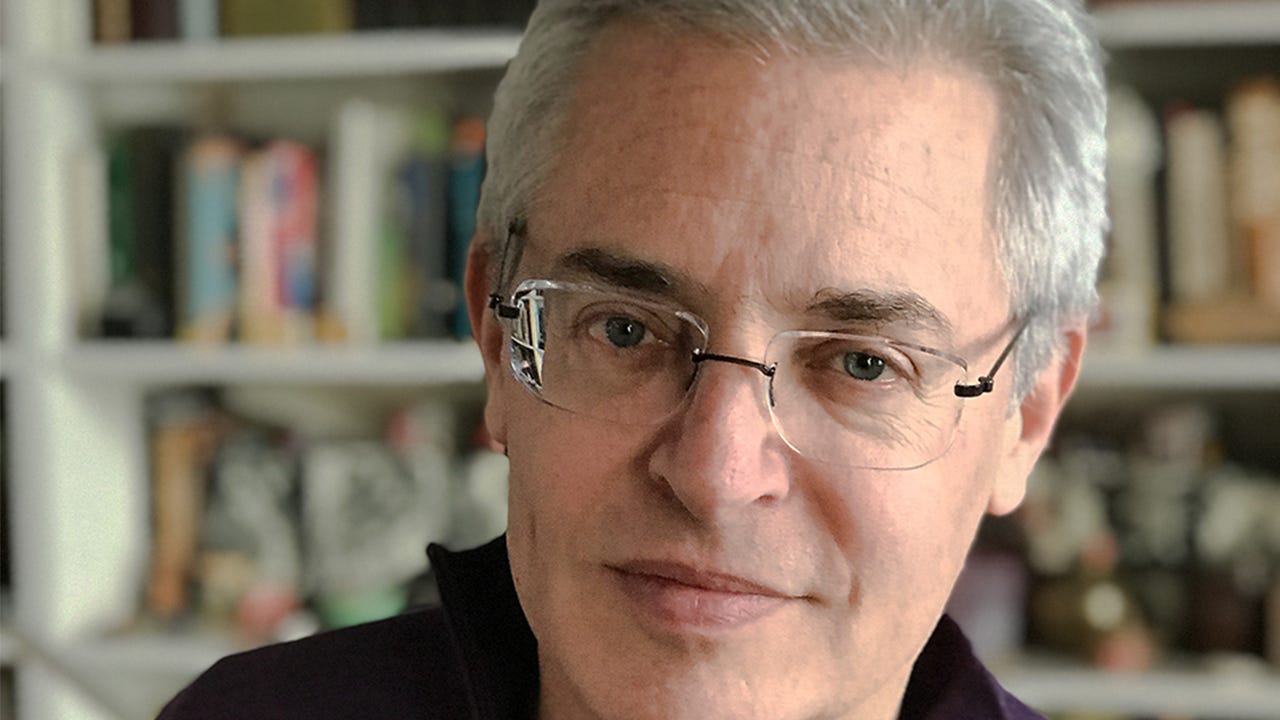
I had the honor of being invited to serve as interlocutor for my good friend John Oakes at his book launch event last month at the Strand in New York City. We’ve known each other since attending Princeton together 40 years ago, as counterculturalists among Young Republicans of the Reagan 80’s. Since then, he became publisher of the Evergreen Review, and a co-founder and editor-at-large of OR/Books, which published my own Program or Be Programmed back in 2010, as well as many notable and even revolutionary titles by people from Julian Assange to Yoko Ono.
His own book, The Fast: The History, Science, Philosophy, and Promise of Doing Without, challenges a lot of our assumptions about abstinence, and made for a particularly interesting Team Human discussion. After all, the Team Human podcast is about human intervention in the machines of capitalism, technology, and the unconscious automation of an industrial society. And the simplest form of intervention I can imagine - the single act that may just distinguish what it means to be human from other animals or even artificial life, is our ability to make the choice to abstain from eating.
Here’s a snippet from the beginning of our conversation. You can hear the rest on Team Human.
Douglas Rushkoff: When I looked at the book, the first thing I though was, “People are going to think this is about stoicism of some kind, especially in these days of indulgence.” Yet you explain in the book that the tradition of fasting is closer to a form of hedonism.
John Oakes: Well, the original understanding of hedonism comes from the Epicureans. They felt that the sensations of our body were signposts on how to live correctly, and that we should use what we experience in the real world as a guide to how to behave.
Douglas Rushkoff: God, isn’t that a novel idea? As opposed to using what we experience in some virtual world or social network? I mean, that our actual experience in life should inform the way we behave and treat each other in life. I’m gonna try this. This is revolutionary.
John Oakes: Very well put. Yeah, if you go back to Epicurus, who now is associated with overindulgence, he really was making the case that moderation is what we should aim for. He was also a very democratic philosopher. Unlike many of his contemporaries —who would only teach wealthy men — Epicurus made a point of opening his school to everybody, and I guess that also prejudiced me in his favor. His big thing was that we use the body as a way to steer us to correct behavior.
Douglas Rushkoff: What Epicurus also called to mind was that there’s a loveliness to fasting. When you described the feeling, the closest sensation I can really think of that I’ve had to it is in yoga class.
Sometimes you do breathing exercises and you can inhale and then lock up here and lock down here. And you do this big inhale and then hold it. And for a while I’m just holding my breath with some effort, and then it’s like. wait a minute. I’m not. I’m just here. You know what I mean? You push through that resistance and you’re in this plateau. It’s like, oh my God, I feel like I could do this forever. If I’m going to breathe again, it’s just going to be my choice.
John Oakes: That’s a really nice connection, Douglas. And I think like yoga, fasting can induce a meditative experience in you if you do it for a while. Again, I don’t want to also sound like I’m advocating it. But for me, it was a very powerful experience and it did induce what you’re talking about.
Douglas Rushkoff: You’ve fasted a number of times. I’m really interested in the moment when it changes from saying, “I’m hungry,” to something else, you know?
John Oakes: Yeah. So it’s got to be different for everyone because everyone has a different kind of body. But generally, after the first 48-72 hours, if you’re on a liquid-only fast, it’s a little uncomfortable, and the enteric nervous system is sending all these messages to your brain saying, “You know, what the hell are you doing? You haven’t fed me. Go out and chase down an antelope and eat it.” But your brain is asserting itself and is redirecting your body.
The struggle when you’re feeling uncomfortable I’d say lasts 48-to-72 hours. And then you have this really cool cocktail of chemicals that starts kicking in. A whole bunch of them. Serotonin, which is sometimes called the happy hormone, starts building up, but it’s really interesting how your body reacts to that.
You get to this plateau of, I don’t want to overstate it, but it’s almost approaching some sort of serenity, and then you go on from there. Some people feel that it really transforms them. Cesar Chavez, the labor organizer who was really into fasting, he said that by about day five, he would have this incredible memory, and he could recall conversations down to the word.
That unfortunately didn’t happen to me. But after a few days, you know, I feel okay.